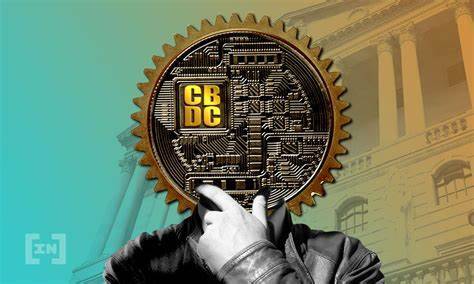#DigitalCurrencies
Explore tagged Tumblr posts
Text
Bitcoin-focused Metaplanet Slips 8% as It Announces Stock Split

Bitcoin-focused Metaplanet Faces 8% Decline Following Stock Split Announcement. Bitcoin-focused Metaplanet, a prominent Japanese investment firm, recently experienced an 8% drop in its share value after announcing a significant stock split. This move, intended to improve liquidity, involved a 10-for-1 stock split aimed at making shares more accessible to a broader range of investors. While the firm's decision to adjust its share structure is seen as a strategic move to enhance market activity, the immediate market response has been less than favorable.

Metaplanet, which has earned its reputation through investments in Bitcoin and other cryptocurrencies, was hoping for a positive outcome from this judgement. The company stated that its goal is to increase the investor base and overall liquidity of its shares, which could lead to stronger long-term growth. However, market reactions have varied, with some investors seeing the decline as a temporary setback. Also Read: trumps-world-liberty-financial-purchases-200m-wlfi-tokens-in-major-crypto-move The stock split is a significant milestone for Bitcoin-focused Metaplanet, as it continues to position itself in the fast rising blockchain and cryptocurrency sectors. Stock splits are commonly viewed as a technique for corporations to make their shares more affordable while maintaining the total value of their capital. This move by Metaplanet is no exception, and it represents a purposeful attempt to appeal to a larger audience. While the initial 8% loss may be worrying for some, it is critical to examine how the move will affect the company's standing in the marketplace in coming weeks. As the cryptocurrency market remains volatile, Metaplanet's long-term strategy of investing in Bitcoin-focused ventures may still be beneficial, despite the temporary drop in share price. Following this announcement, Metaplanet intends to focus on increasing its footprint in the Bitcoin and blockchain sectors. The corporation is eager to capitalise on the growing global acceptance of digital currencies and their underlying technologies. Metaplanet, a bitcoin-focused investment firm, is likely to continue looking for possibilities that correspond with the cryptocurrency market's future growth. Investors looking at Metaplanet should keep a watch on the company's post-split performance. While the market decrease has aroused some concerns, it may also create an opportunity for investors who believe Bitcoin and similar ventures have a bright future. The company's strong position in the cryptocurrency sector may help it rebound from this early setback, making it an attractive company to follow in the coming years. Read the full article
#Bitcoin#Bitcoin-focusedMetaplanet#blockchain#cryptocurrencyinvestments#digitalcurrencies#liquidity#Metaplanetshares#stockmarket#stocksplit
2 notes
·
View notes
Text
Why People Oppose CBDCs and the Laws Enacted to Fight Them

Central Bank Digital Currencies (CBDCs) have become a hot topic in the world of finance. These digital currencies, issued by central banks, promise to revolutionize the way we transact. However, they also face significant opposition. This article explores the reasons behind the opposition to CBDCs and the legislative actions taken against them.
What are CBDCs?
CBDCs are digital versions of a country’s fiat currency, issued and regulated by the central bank. Unlike decentralized cryptocurrencies such as Bitcoin, CBDCs are controlled by the government. Countries like China and the Bahamas have already launched their versions of CBDCs, while many others, including the United States, are exploring their potential.
Reasons for Opposition
Privacy Concerns
One of the primary concerns about CBDCs is the potential for government surveillance. Unlike cash transactions, which are anonymous, digital transactions can be tracked. This could allow governments to monitor individuals’ spending habits and financial activities closely. For instance, a government could potentially know what you buy, when you buy it, and where you buy it. This level of surveillance is unsettling for many who value their financial privacy.
Control and Censorship
CBDCs could also give governments unprecedented control over personal finances. They could, for example, freeze accounts or limit what individuals can spend their money on. This level of control raises concerns about potential misuse of power. Imagine a scenario where political dissenters find their access to funds restricted because of their opposition to the government.
Economic Freedom
Opponents of CBDCs argue that they could erode financial autonomy. Decentralized cryptocurrencies like Bitcoin offer an alternative to the traditional financial system, promoting financial freedom and independence. In contrast, CBDCs are seen as a tool for reinforcing governmental control over the economy.
Security Risks
Digital currencies are susceptible to cyber-attacks and fraud. The infrastructure supporting CBDCs would need to be highly secure to prevent hacking and protect users’ funds. Any vulnerabilities in the system could have severe consequences, including financial losses and disruptions in the economy.
Laws and Regulations Against CBDCs
Opposition to CBDCs has led to the introduction of various laws aimed at restricting or prohibiting their use. Several states in the US have taken significant steps in this direction.
State-Level Legislation
South Dakota: Recently passed a law prohibiting the state from accepting CBDCs as payment and blocking participation in CBDC trials.
Indiana, Florida, and Alabama: Between April and June 2023, these states passed laws excluding CBDCs from the definition of money under the Uniform Commercial Code, potentially discouraging business usage.
Oklahoma: Passed a law preventing the state from participating in CBDC trials or using CBDCs.
Federal-Level Legislation
CBDC Anti-Surveillance State Act: In September 2023, the House Financial Services Committee voted in favor of this act, which would prohibit the Federal Reserve from issuing a CBDC directly to individuals or using it for monetary policy. This bill still needs to pass the full House and Senate.
Political Stances: Former President Donald Trump has vowed to block a CBDC if he becomes President again.
Impact of Opposition
The opposition to CBDCs has significant implications for their adoption and implementation. State-level laws and proposed federal bills create substantial hurdles, signaling strong resistance to their rollout. Concerns about financial privacy and government overreach play a crucial role in shaping public opinion and legislative action. If the opposition successfully limits or prevents the rollout of CBDCs, it could influence global approaches to digital currencies.
Conclusion
The debate over CBDCs is far from over. While they promise to modernize the financial system, the concerns about privacy, control, economic freedom, and security cannot be ignored. The laws and regulations against CBDCs reflect a broader political and societal debate about the future of money and financial autonomy. As this debate continues, it is essential to stay informed and engaged with developments in digital currencies.
Call to Action
What are your thoughts on CBDCs? Do you support their implementation, or do you have concerns about their impact? Share your opinions in the comments section below.
For more insights on financial freedom and digital currencies, subscribe to our blog and join the conversation. Don't forget to check out our YouTube channel, Unplugged Financial, where we dive deeper into these topics with in-depth analyses, expert interviews, and practical advice. Join us as we explore the future of money and the potential for a financial revolution!
Subscribe to our blog for the latest articles: Unplugged Financial Blog
Watch our videos and subscribe to our YouTube channel: Unplugged Financial YouTube Channel
Let's learn about the Bitcoin evolution together!
#CentralBankDigitalCurrencies#CBDCs#Bitcoin#FinancialPrivacy#GovernmentSurveillance#DigitalCurrencies#DecentralizedFinance#StateLegislation#FederalLegislation#EconomicFreedom#FinancialAutonomy#CBDCOpposition#DigitalCurrencySecurity#MonetaryPolicy#AntiCBDCLaws#PrivacyConcerns#EconomicControl#DigitalFinancialInfrastructure#Cryptocurrency#FinancialRevolution#financial education#financial empowerment#financial experts#digitalcurrency#blockchain#finance#unplugged financial#globaleconomy
3 notes
·
View notes
Link
0 notes
Text
Tech Revolutions Take Time: El Salvador’s Bitcoin Experiment Revealed the Weak Points
This summer, El Salvador’s President expressed disappointment over the reluctance of the population to use Bitcoin. Most people continued to resist using Bitcoin despite favorable conditions created by the government. Now, the results of a recent poll appeared, which revealed that a staggering 92% of the country’s citizens have never used Bitcoin.
It's worth saying that the population supports their President. After all, the shift to Bitcoin has alleviated IMF debts, improved the country’s global image, attracted international attention, and boosted tourism. Citizens recognize these positive changes and see the benefits of the policy, yet most still prefer to stick to their traditional ways.
This is an intriguing case study for other nations, which consider similar strategies.
So, what could prompt people to change if even the potential for higher profit hasn't been enough? I believe the key is education.
We see how all technological innovations historically meet resistance, so slow adoption is a natural element of any tech revolution. But to make Bitcoin mainstream, we should focus on the need for education. It will help to overcome fear, confusion, and the skepticism that often surrounds digital currencies. This is a sure way to build trust in the technology within the population.

#BitcoinAdoption#ElSalvador#CryptoRevolution#TechEducation#DigitalCurrencies#BlockchainFuture#BitcoinMainstream
0 notes
Text
Exploring Cryptocurrency: A New Frontier for Scotland's Economic Innovation
The Role of Cryptocurrency in Modern Scottish Economy: A Leap Towards Financial Innovation Hello, dear readers! In today’s discussion, we will dive into the dynamic world of cryptocurrencies and explore their potential role in the Scottish economy. As digital currencies gain popularity globally, it’s essential to consider how adopting these innovations could shape Scotland's financial landscape and contribute to economic freedom. Cryptocurrencies, by their nature, offer numerous advantages, such as decentralisation, security, transparency, and efficiency in transactions. This can be particularly transformative for small businesses in Scotland, providing them with a more accessible entry into global markets through reduced transaction fees and shorter processing times compared to traditional banking systems. Moreover, the underlying technology of cryptocurrencies, blockchain, presents myriad opportunities beyond just financial transactions. It can revolutionise various sectors by enhancing data security, improving supply chain management, and ensuring the integrity of elections and public records. Yet, embracing cryptocurrencies is not without its challenges. Regulatory uncertainty, volatility in value, and issues related to cybersecurity are significant concerns that need addressing. Scotland can navigate these challenges by developing a robust regulatory framework that ensures security and transparency while promoting innovation and protecting consumers. The Scottish government's role could be instrumental in fostering an environment conducive to the growth of cryptocurrency by initiating educational programmes, encouraging technological incubation, and facilitating partnerships between tech companies and traditional financial institutions. As we contemplate the integration of cryptocurrency into Scotland's economy, the potential for fostering a more inclusive financial system is immense. Digital currencies could democratise financial services, making them more accessible to those who are currently underserved by conventional financial systems. I invite your insights and debates on this thrilling subject. What do you think are the primary benefits and barriers for cryptocurrency in Scotland? How should policymakers and business leaders approach this new frontier? Thank you for joining in on today's thought-provoking discussion. Warm regards, Alastair Majury *Perspectives Unbound* --- *Follow Alastair Majury for more insights on innovation, economic freedom, and the emerging trends shaping our financial landscape.*
#Cryptocurrency#ScottishEconomy#FinancialInnovation#DigitalCurrencies#BlockchainTechnology#EconomicFreedom#SmallBusinessSupport#GlobalMarkets#DataSecurity#SupplyChainManagement#RegulatoryFrameworks#Cybersecurity#TechPartnerships#FinancialInclusion#EconomicTrends
0 notes
Text
Navigating the Regulatory Waters: Fintech and Digital Currencies 🌊💻📈
Hey Tumblr fam! Today, let's dive into the complex world where finance meets technology and explore how regulators are navigating the rise of fintech in the era of digital currencies. 💰🚀
🔍 The Fintech Frontier: Fintech, short for financial technology, has been transforming the financial landscape with innovations ranging from mobile payments to robo-advisors. But as digital currencies like Bitcoin and Ethereum gain traction, regulators are facing new challenges in keeping pace with these technological advancements.
💡 The Digital Currency Dilemma: Digital currencies operate on decentralized networks, offering benefits like faster transactions and reduced fees. However, their decentralized nature also raises concerns about security, money laundering, and consumer protection. Regulators are grappling with striking a balance between fostering innovation and safeguarding the interests of consumers and the financial system.
📝 Regulatory Responses: Regulators worldwide are stepping up efforts to establish clear guidelines for fintech firms operating in the digital currency space. This includes licensing requirements, anti-money laundering measures, and investor protection protocols. Additionally, some countries are exploring the potential of central bank digital currencies (CBDCs) as a regulated alternative to private cryptocurrencies.
🌐 Global Coordination: Given the borderless nature of digital currencies, regulatory efforts often require international collaboration. Forums like the Financial Stability Board (FSB) and the Basel Committee on Banking Supervision play a crucial role in facilitating dialogue and harmonizing regulatory approaches across jurisdictions.
🚀 Fostering Innovation Responsibly: While regulations are essential for maintaining stability and protecting consumers, overly restrictive measures can stifle innovation. Regulators are striving to strike a delicate balance that encourages fintech innovation while mitigating potential risks associated with digital currencies.
💬 Join the Conversation: What are your thoughts on the regulation of fintech in the era of digital currencies? Do you believe regulators are striking the right balance between innovation and oversight? Share your insights in the comments below! Let's keep the conversation going. 💬✨
Let's stay informed and engaged as we navigate the ever-evolving intersection of finance and technology! 💻🌐
#finance#thefinrate#payment gateway#fintech#financialinsights#financetalks#finance101#fintechrevolution#FintechRegulation#DigitalCurrencies#FinanceInnovation
0 notes
Text
Tether Freezes Cryptocurrency Wallets Over Sanctions: What It Means for Digital Money #2020USpresidentialelection #compliance #credibility #cryptocommunity #decentralization #digitalassetecosystem. #digitalcurrencies #frozenwallets #illicitfinancing #lawenforcementagencies #privacy #regulatorylandscapes #Russianactors #sanctions #stablecoinissuer #strictregulations #terroristgroups #tether #trust #USTreasuryDepartment
#Business#2020USpresidentialelection#compliance#credibility#cryptocommunity#decentralization#digitalassetecosystem.#digitalcurrencies#frozenwallets#illicitfinancing#lawenforcementagencies#privacy#regulatorylandscapes#Russianactors#sanctions#stablecoinissuer#strictregulations#terroristgroups#tether#trust#USTreasuryDepartment
0 notes
Text

Digital Money: Navigating the World of Online Transactions In this guide, we delve into the dynamic world of digital money, exploring how digital currencies, online banking, and mobile payment apps are working.
0 notes
Photo

CBDC's FAQ"S https://medium.com/@crypto101bylauriesuarez/central-bank-digital-currencies-cbdcs-faq-7b9e7d748556
0 notes
Text
#DigitalCurrencies#InvestmentOpportunities#TeslaCoin#Cryptocurrency#HighReturns#EarlyAdoption#BlockchainTechnology#FinancialRevolution#Diversification#Innovation#FutureGrowth#InvestorInterest#DecentralizedFinance#Disruption#InvestmentPortfolio#PotentialGains#CryptoInvesting#InvestmentStrategy#MarketTrends#CryptoMarket
0 notes
Text
The Rise of Bitcoin and Digital Assets in Traditional Finance

In recent years, the financial landscape has witnessed a remarkable transformation as Bitcoin and digital assets have gained significant traction within traditional finance. What was once viewed with skepticism by Wall Street giants has now become an undeniable force shaping the future of the industry. The rise of Bitcoin and digital assets in traditional finance represents a paradigm shift, challenging long-standing norms and offering new possibilities for investors, institutions, and the global economy. In this article, we will delve into the evolving stance of Wall Street, explore the factors driving this adoption, and examine the potential implications for the future of finance.
Wall Street's Change of Heart
In 2017, Larry Fink, the founder and CEO of BlackRock, referred to Bitcoin as an "index of money laundering." However, six years later, in 2023, Fink surprised the financial world by submitting an application for a Bitcoin spot ETF with the US Securities and Exchange Commission (SEC). Not only did Fink express his support for Bitcoin, but he also emphasized its potential to revolutionize the financial landscape, considering it as a digitized form of gold.
Shifting Perspectives: Wall Street's Growing Interest in Crypto
Larry Fink is not the only Wall Street titan to have experienced a change of heart towards Bitcoin. Billionaire financier Ken Griffin, who once called the crypto sector a "jihadist call" against the USD, has also shifted his stance. Griffin's electronic trading company, Citadel Securities, is now backing a platform that facilitates institutional investors' participation in digital currency trading. Fidelity Investments, the largest 401(k) administrator in the US, is another major player exploring crypto. In 2022, Fidelity allowed its workers to invest a portion of their retirement savings in Bitcoin. Additionally, its subsidiary, Fidelity Digital Assets, has invested in EDX, a new crypto exchange. Notably, Fidelity filed for a Bitcoin spot ETF just two weeks after BlackRock, signaling Wall Street's growing interest in cryptocurrencies.
From Disruption to Assimilation
Initially, the crypto industry aimed to challenge Wall Street and Washington's dominance over the US financial system. However, a significant shift is occurring, as Wall Street now seeks to integrate with the crypto industry and join its ranks. This development is particularly striking given the crypto sector's weakened state, resulting from a prolonged crypto winter and increased regulatory scrutiny by the US SEC.
Traditional Finance Adopts Crypto Amid Challenges
The crypto sector in the US currently finds itself at a crossroads due to a series of challenges. The industry has faced a year of price declines, company failures, and bankruptcies, which have dampened interest in digital assets. Regulatory crackdowns have targeted crypto companies and their executives, resulting in criminal charges for entrepreneurs and public shaming of celebrity endorsers. However, these challenges have presented an opportunity for financial giants to offer a streamlined selection of crypto products and services that are less likely to attract regulatory scrutiny. Consequently, many users are now willing to embrace these offerings.
The Future of Crypto's Ambition
As the weakened crypto industry seeks to regain strength, its ambition to democratize finance is put to the test. Matthew Sigel, from VanEck, suggests that during bear markets, assets often transition from weak to strong hands. Similarly, this phenomenon appears to be happening in the crypto industry as well. The embrace of cryptocurrencies by Wall Street giants like BlackRock, Fidelity, and Citadel Securities signifies a seismic shift in the financial landscape. While the crypto sector faces challenges and regulatory obstacles, the adoption by traditional finance players offers new opportunities for growth and mainstream acceptance.
Conclusion
As we reach the end of our exploration into the rise of Bitcoin and digital assets in traditional finance, it becomes clear that a seismic shift is underway. Wall Street, once hesitant and skeptical, now embraces the potential of cryptocurrencies to revolutionize the financial landscape. The adoption by industry giants such as BlackRock, Fidelity, and Citadel Securities not only provides a stamp of approval but also signals a wider acceptance and integration of digital assets into mainstream finance. While challenges and regulatory hurdles persist, the increased participation of traditional finance in the crypto sector brings new opportunities for growth, innovation, and the democratization of finance. As we move forward, it will be fascinating to witness how this synergy between digital assets and traditional finance unfolds and shapes the future of the global economy. For more articles visit: Cryptotechnews24 Source: cryptonews.com
Related Posts
Read the full article
#Bitcoin#BlackRock#CitadelSecurities#cryptoindustry#CryptoNews#cryptowinter#digitalcurrencies#Fidelity#financialgiants#LarryFink#SEC#USSEC#WallStreet
0 notes
Text
USDC and EURC Become the First Stablecoins Approved Under Dubai's New Crypto Rules

Dubai Approves USDC and EURC as First Stablecoins Under New Crypto Regulations Dubai has always been known for its forward-thinking approach when it comes to finance, technology, and innovation. In recent years, the city has taken massive strides in becoming a global hub for the cryptocurrency and blockchain space. The latest milestone in Dubai’s crypto landscape is the approval of USDC (USD Coin) and EURC (Euro Coin) as the first stablecoins under its newly introduced crypto regulations. This marks a significant development for the entire industry and brings the region one step closer to becoming the world leader in cryptocurrency adoption.

The UAE government has been working hard to establish itself as a major player in the cryptocurrency industry, and the approval of USDC and EURC is consistent with that goal. Stablecoins, which are digital currencies tied to a fiat currency such as the US dollar or the euro, provide stability in the otherwise unpredictable world of cryptocurrencies. As a result, these coins have become widely utilised for trading and hedging, making them critical to the overall crypto economy. Also Read: bitcoin-price-and-nasdaq-100-index-fall-ahead-of-nvidia-earnings/ With this regulatory permission, Dubai's businesses and financial institutions now have a clear and secure path to using USDC and EURC for transactions, remittances, and investments. The Dubai Financial Services Authority (DFSA) and the Virtual Asset Regulatory Authority (VARA) performed critical roles in the approval process, ensuring that stablecoins followed Dubai's strict financial standards. Why Does This Approval Matter? The approval of USDC and EURC represents a significant milestone in Dubai's cryptocurrency rules. This approach is likely to set a global standard for integrating stablecoins into existing finance institutions' regulatory frameworks. By allowing such digital currencies to be fully regulated, Dubai protects both businesses and investors against possible threats. Furthermore, the inclusion of USDC and EURC in Dubai's crypto legislation increases the validity and credibility of the cryptocurrency business. These stablecoins are already widely used in the global market, with USDC being a popular choice for those using decentralised finance (DeFi) applications. With governmental support, these stablecoins can now function more freely and transparently in the UAE, potentially encouraging other governments to take similar steps. Dubai's vision for cryptocurrency regulation Dubai's new crypto legislation are part of a larger ambition to build a well-regulated ecosystem for digital assets, positioning the city as a top destination for crypto enterprises and investors. The government has taken a comprehensive approach to regulation, covering issues including consumer protection, anti-money laundering (AML) requirements, and know-your-customer (KYC) procedures. These stablecoins lay the groundwork for Dubai's cryptocurrency industry to expand in the future. Businesses in the region will benefit from increased liquidity and financial stability if they use well-regulated stablecoins like as USDC and EURC. This permission also enables Dubai to remain competitive with other global financial centres such as London, New York, and Singapore, who are all incorporating digital currencies into their financial systems. The future of stablecoins in Dubai and beyond. With USDC and EURC now allowed under Dubai's crypto rules, the way is clear for other stablecoins to follow suit. The success of this regulatory framework will most likely prompt the UAE to implement more measures to further integrate cryptocurrencies into its financial system. Furthermore, the worldwide prognosis for stablecoins appears optimistic, with many countries examining the benefits of providing a stable digital alternative to traditional currencies. As rules evolve, we may see more innovations and use cases for stablecoins in a variety of industries, ranging from remittances and cross-border payments to decentralised finance (DeFi) applications. Finally, Dubai's adoption of USDC and EURC as the first stablecoins under its new crypto laws marks a watershed event in the world of cryptocurrencies. It demonstrates Dubai's unwavering commitment to supporting innovation in the cryptocurrency field while maintaining regulatory compliance and consumer protection. As additional stablecoins are approved by UAE regulators, Dubai will strengthen its position as a major hub for digital assets and blockchain technology. Read the full article
#cryptocurrencyregulations#digitalcurrencies#DubaiCryptoRegulations#DubaiCryptoRules#DubaiFinancialServicesAuthority#EURC#Stablecoins#UAECryptoRegulations#USDC
0 notes
Text
Cryptocurrency Investment Guide: How to Navigate the Digital Currency Market

Cryptocurrency: A Comprehensive Guide to Successfully Investing in Digital Currencies By Amir Shayan Cryptocurrency has emerged as a revolutionary asset class, attracting the attention of investors worldwide. With the rise of Bitcoin and other digital currencies, the market has witnessed incredible growth and volatility. If you're considering entering the world of cryptocurrency investment, it's essential to arm yourself with the knowledge and strategies necessary to navigate this evolving market successfully. This comprehensive guide will provide you with insights, tips, and practical advice on how to navigate the digital currency market and make informed investment decisions. - Understanding Cryptocurrency To start your cryptocurrency investment journey, it's crucial to understand the fundamental concepts of digital currency. This section will cover the basics, including what cryptocurrencies are, how they work, and the technology behind them, such as blockchain. You'll also learn about the different types of cryptocurrencies and their unique characteristics. - Evaluating Investment Opportunities Once you have a solid understanding of cryptocurrency, it's time to explore investment opportunities. This section will guide you through the process of evaluating various cryptocurrencies based on factors such as market capitalization, technology, team, and community. You'll learn how to analyze whitepapers, track market trends, and identify promising projects for potential investment. - Managing Risk and Security Cryptocurrency investments come with inherent risks, including market volatility and security threats. This section will teach you essential risk management techniques to protect your investments. You'll learn about setting realistic investment goals, diversifying your portfolio, and implementing security measures to safeguard your digital assets. - Technical Analysis and Trading Strategies Technical analysis plays a crucial role in understanding cryptocurrency price movements and identifying potential trading opportunities. In this section, you'll discover popular technical analysis tools and indicators used by traders. You'll also learn about different trading strategies, including day trading, swing trading, and long-term investing, and how to apply them to the cryptocurrency market. - Fundamental Analysis and Research In addition to technical analysis, understanding the fundamental aspects of a cryptocurrency is essential for informed investment decisions. This section will delve into fundamental analysis, including evaluating the project's team, partnerships, roadmap, and adoption potential. You'll learn how to conduct thorough research and make data-driven investment choices. - Wallets and Exchanges To participate in the cryptocurrency market, you'll need a digital wallet to store your assets and a reliable cryptocurrency exchange to facilitate trading. This section will guide you through the process of choosing the right wallet and exchange based on factors like security, ease of use, and available features. You'll also learn about cold storage options and best practices for securing your cryptocurrency holdings. - Market Trends and Regulatory Landscape The cryptocurrency market is influenced by various factors, including market trends and regulatory developments. This section will explore the current trends shaping the digital currency market and provide insights into the regulatory landscape. You'll learn how to stay updated with market news, monitor regulatory changes, and adapt your investment strategy accordingly. - Emotional Intelligence and Mindset Successful cryptocurrency investment goes beyond technical analysis and market research. Emotional intelligence and mindset play a significant role in navigating the highs and lows of the market. This section will focus on developing emotional intelligence, managing emotions, and maintaining a disciplined approach to investment. You'll learn techniques to overcome fear, greed, and FOMO (fear of missing out) and make rational decisions. - Tax Considerations and Legal Compliance As cryptocurrencies gain mainstream adoption, tax regulations and legal compliance become important considerations for investors. This section will provide an overview of cryptocurrency taxation and guide you on fulfilling your legal obligations. You'll learn about reporting requirements, taxable events, and strategies for minimizing tax liabilities. - Future Trends and Opportunities The cryptocurrency market is constantly evolving, presenting new trends and opportunities. In this final section, we'll explore the future of digital currencies, including emerging technologies like decentralized finance (DeFi) and non-fungible tokens (NFTs). You'll gain insights into potential growth areas and how to position yourself for success in the ever-changing landscape.
Conclusion
Navigating the digital currency market requires knowledge, strategy, and a disciplined approach. By following the insights and strategies outlined in this cryptocurrency investment guide, you'll be well-equipped to make informed decisions and maximize your chances of success. Remember, cryptocurrency investment comes with risks, so it's essential to do your due diligence and stay informed. With the right mindset and continuous learning, you can navigate the digital currency market with confidence and seize the opportunities it presents. Read the full article
#blockchaintechnology#cryptomarket#cryptocurrencyinvestments#cryptocurrencywallets#digitalcurrencies#fundamentalanalysis#investmentstrategies#regulatorylandscape#Riskmanagement#Technicalanalysis
0 notes
Link
The following are 8 signs that the futuristic control freak agenda of the globalists is rapidly moving forward. We must fight these globalist changes.
0 notes
Text
Exploring the Impact of Digital Currencies on Scotland's Economic Revival
Unveiling the Potential of Digital Currencies in Revitalising Scotland’s Economy Hello, dear readers! In today’s post, we dive into the burgeoning world of digital currencies and explore their potential in revitalising the Scottish economy. As global interest in digital currencies and blockchain technology surges, Scotland stands at the cusp of ushering in an innovative era that could redefine monetary transactions and boost economic freedom. The rise of digital cryptocurrencies such as Bitcoin and Ethereum has introduced a new layer in the financial landscape, characterised by decentralisation and freedom from traditional banking systems. This shift presents Scotland with an opportunity to pioneer the adoption of these technologies, fostering a new environment that can attract tech entrepreneurs and investors. Implementing digital currency systems could offer significant economic advantages for Scotland. It could simplify transactions, reduce fees, increase transaction speed, and offer greater transparency. Moreover, embracing blockchain technology could enhance data security and integrity across various sectors including finance, healthcare, and public services. However, the journey towards integrating digital currencies involves several challenges. The volatility of digital currencies and regulatory issues are significant hurdles that need addressing. Developing a stable regulatory framework that supports innovation while ensuring consumer protection is vital. Additionally, widespread education and infrastructure development are crucial to prepare the market and the populace for this shift. Scotland’s rich history of innovation and its strategic push towards digital transformation present a unique opportunity to lead in this area. By fostering a favourable environment for the growth of digital currencies and blockchain technology, Scotland can position itself as a global leader in the digital age economy. I invite you to share your views on the potential impacts of digital currencies on Scotland’s economic landscape. What are the most significant benefits and risks associated with these technologies? How can Scotland navigate these challenges to harness the full potential of digital currencies? Your insights are invaluable as we explore the possibilities of embracing these transformative technologies for economic advancement. Thank you for participating in this critical discussion. Warm regards, Alastair Majury *Perspectives Unbound* --- *Follow Alastair Majury for more insights on economic freedom, technological innovation, and strategies for Scotland’s economic revitalisation.*
#DigitalCurrencies#ScotlandEconomy#BlockchainTechnology#EconomicFreedom#TechInnovation#Bitcoin#Ethereum#FinancialTechnology#Decentralization#MonetaryTransactions#EconomicRevitalisation#DataSecurity#RegulatoryFrameworks#TechnologyLeadership#DigitalTransformation
0 notes
Text
Kapital (YC W22), the data-driven neobank for SMBs and entrepreneurs in Latam, launched a corporate digital dollar card secured by blockchain technology to provide protection against the devaluation of the Colombian peso. The card allows businesses to perform international transfers, access exclusive Mastercard World Elite benefits, and manage their accounts and payments through the Kapital platform.
#ycombinator#latam#latamstartups#fintech#fintechnews#fintechstartups#digitalbanking#neobank#neobanking#blockchain#digitalcurrencies#crypto#mexico
0 notes